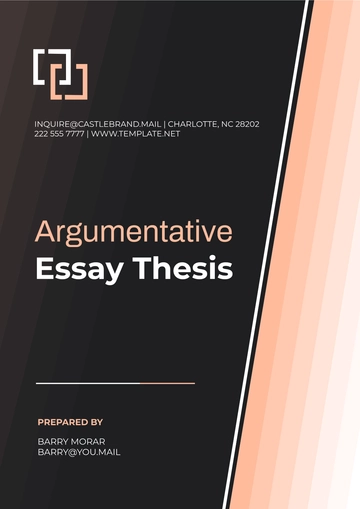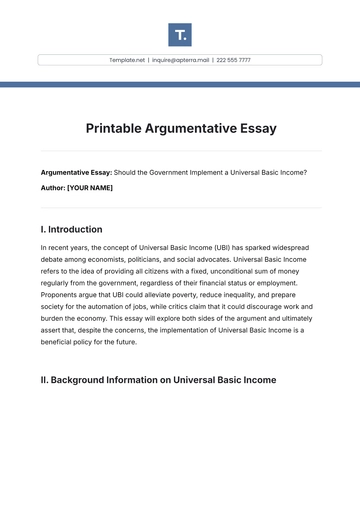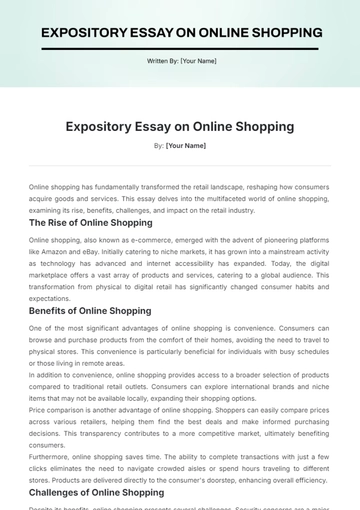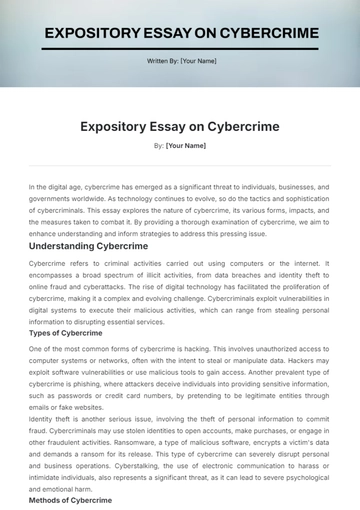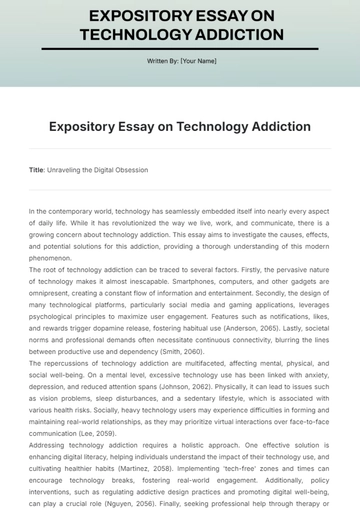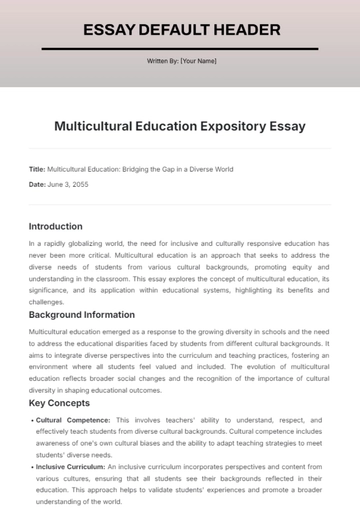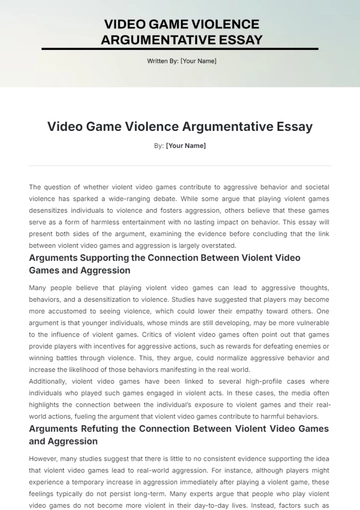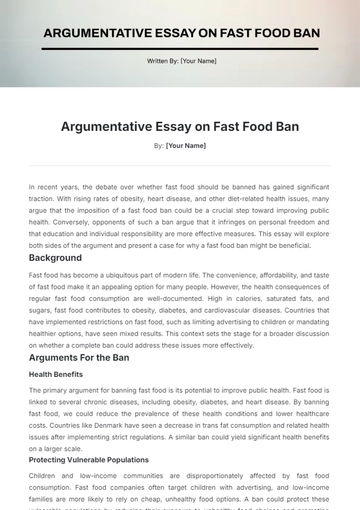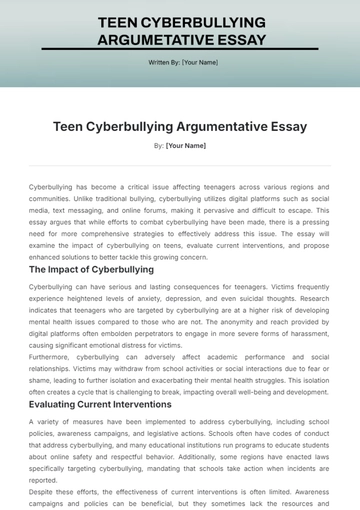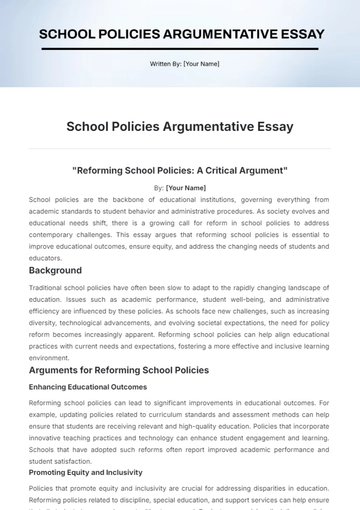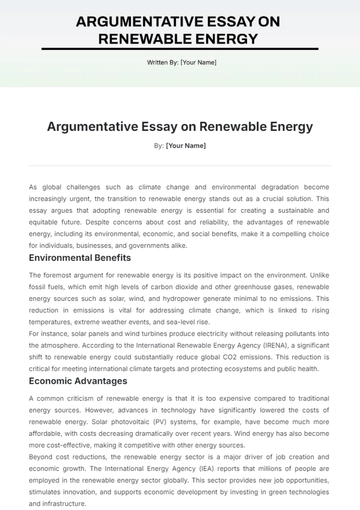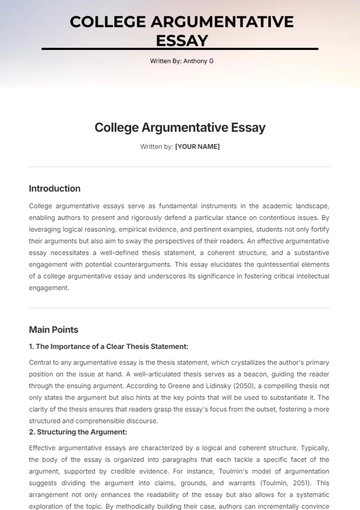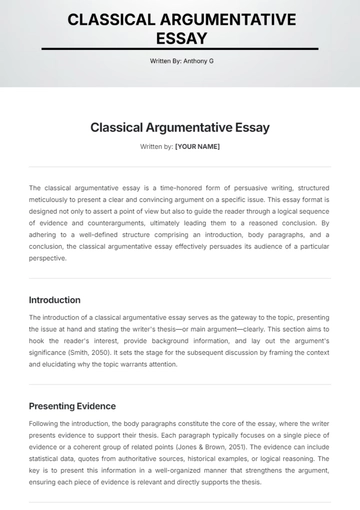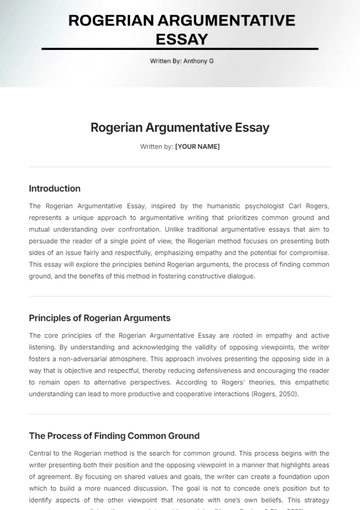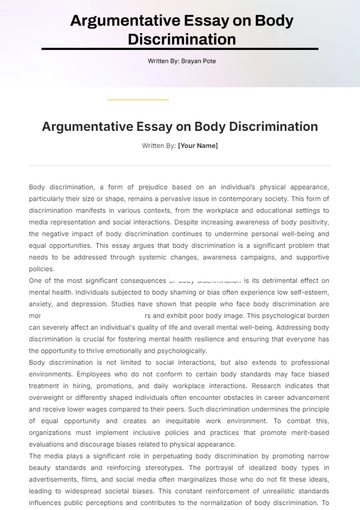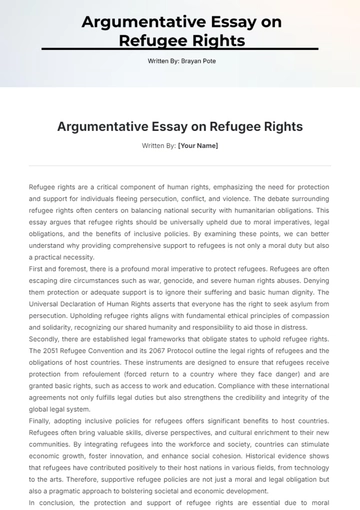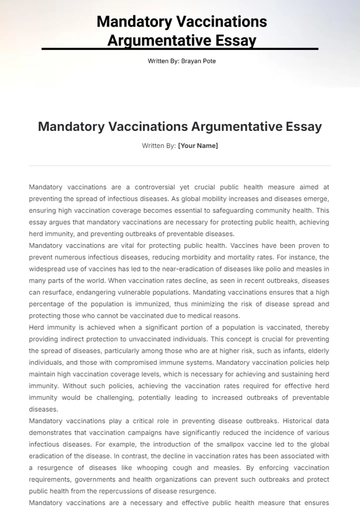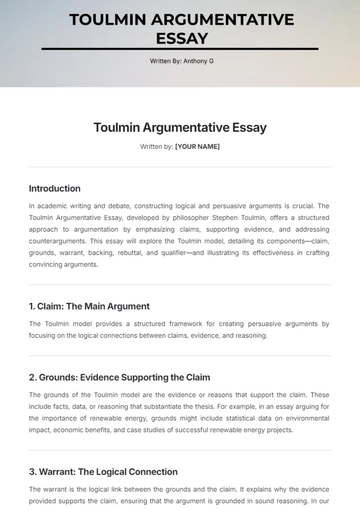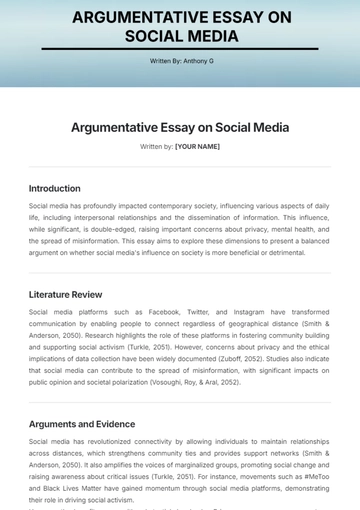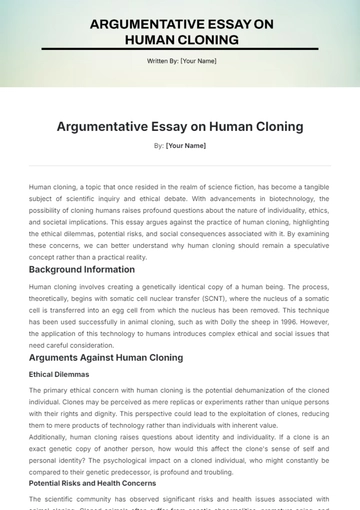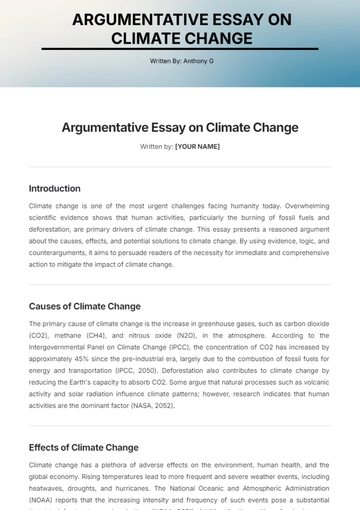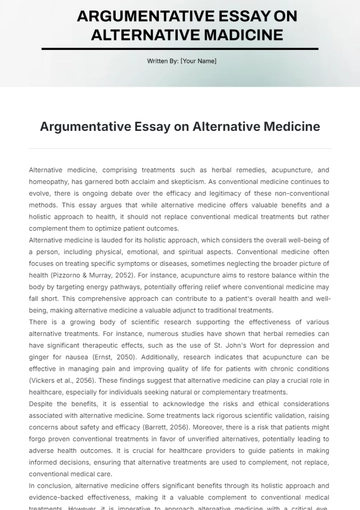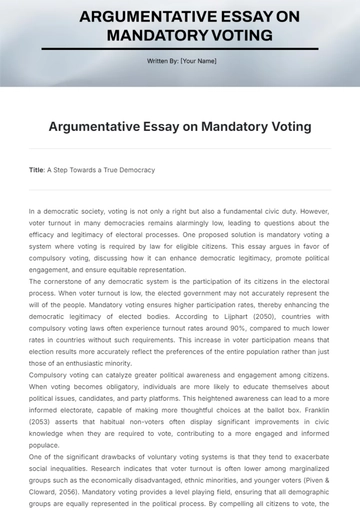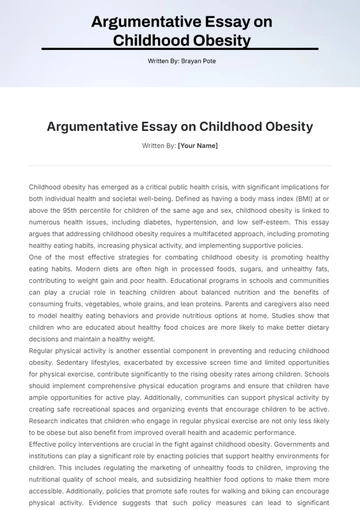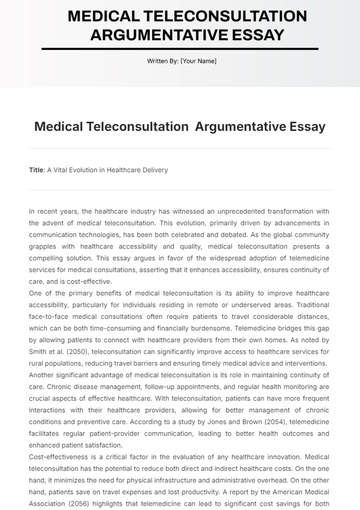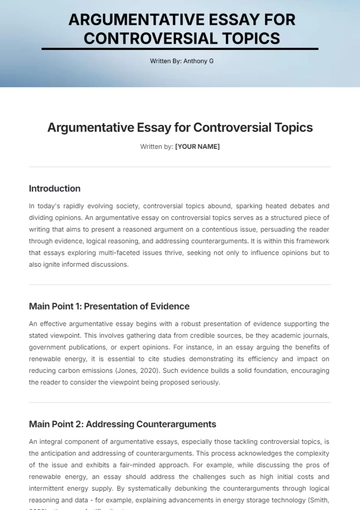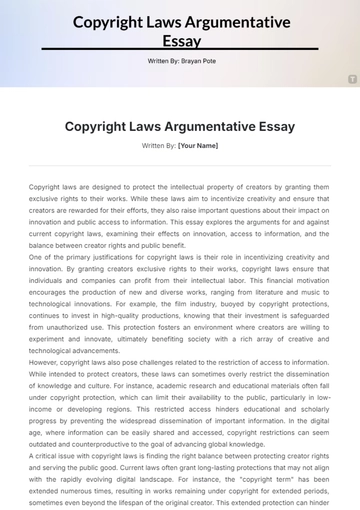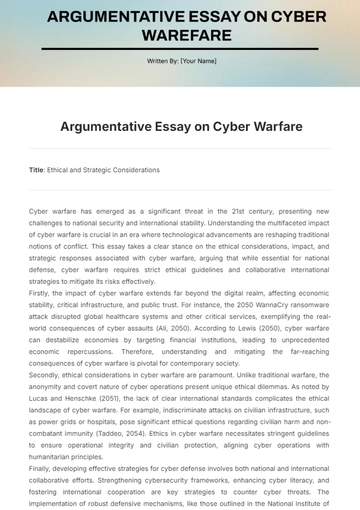Free Copyright Laws Argumentative Essay
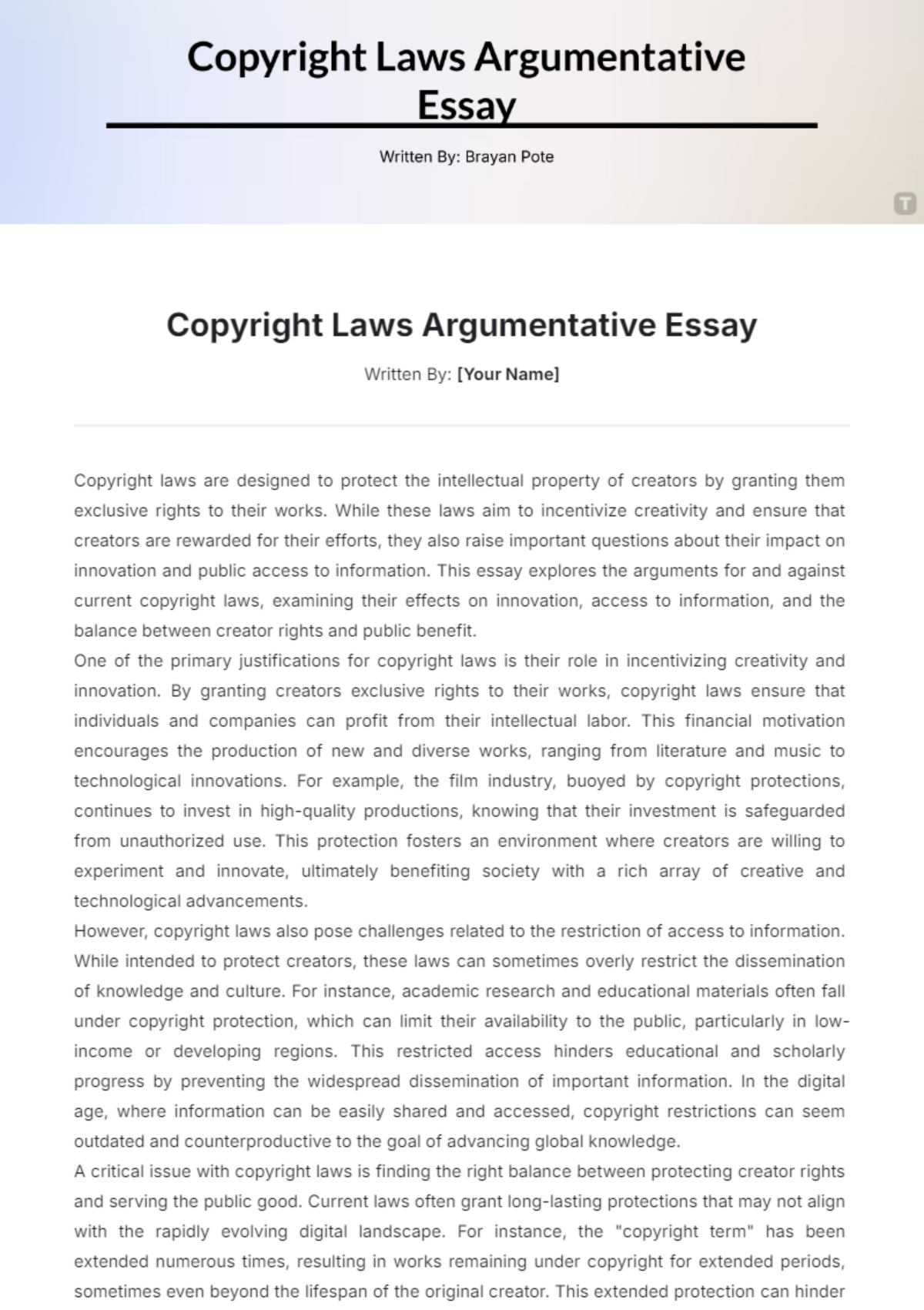
Written By: [Your Name]
Copyright laws are designed to protect the intellectual property of creators by granting them exclusive rights to their works. While these laws aim to incentivize creativity and ensure that creators are rewarded for their efforts, they also raise important questions about their impact on innovation and public access to information. This essay explores the arguments for and against current copyright laws, examining their effects on innovation, access to information, and the balance between creator rights and public benefit.
One of the primary justifications for copyright laws is their role in incentivizing creativity and innovation. By granting creators exclusive rights to their works, copyright laws ensure that individuals and companies can profit from their intellectual labor. This financial motivation encourages the production of new and diverse works, ranging from literature and music to technological innovations. For example, the film industry, buoyed by copyright protections, continues to invest in high-quality productions, knowing that their investment is safeguarded from unauthorized use. This protection fosters an environment where creators are willing to experiment and innovate, ultimately benefiting society with a rich array of creative and technological advancements.
However, copyright laws also pose challenges related to the restriction of access to information. While intended to protect creators, these laws can sometimes overly restrict the dissemination of knowledge and culture. For instance, academic research and educational materials often fall under copyright protection, which can limit their availability to the public, particularly in low-income or developing regions. This restricted access hinders educational and scholarly progress by preventing the widespread dissemination of important information. In the digital age, where information can be easily shared and accessed, copyright restrictions can seem outdated and counterproductive to the goal of advancing global knowledge.
A critical issue with copyright laws is finding the right balance between protecting creator rights and serving the public good. Current laws often grant long-lasting protections that may not align with the rapidly evolving digital landscape. For instance, the "copyright term" has been extended numerous times, resulting in works remaining under copyright for extended periods, sometimes even beyond the lifespan of the original creator. This extended protection can hinder access to historical and cultural works that could otherwise enrich public knowledge and education. Reforming copyright laws to shorten protection periods or implement more flexible licensing models could help strike a better balance, allowing for broader public access while still providing fair compensation to creators.
In conclusion, copyright laws play a crucial role in fostering creativity and innovation by providing financial incentives for creators. However, they also present challenges related to restricted access to information and the need for a balanced approach that serves both creator interests and public benefit. As the digital landscape continues to evolve, it is essential to reassess and potentially reform copyright laws to ensure they effectively balance the rights of creators with the need for open access to information. By doing so, we can support ongoing innovation while promoting a more equitable distribution of knowledge and culture.
- 100% Customizable, free editor
- Access 1 Million+ Templates, photo’s & graphics
- Download or share as a template
- Click and replace photos, graphics, text, backgrounds
- Resize, crop, AI write & more
- Access advanced editor
Craft a compelling argument with the Copyright Laws Argumentative Essay template from Template.net. This fully editable and customizable resource allows you to tailor your essay to specific needs. Easily adjust content using our Ai Editor Tool, ensuring a polished, professional piece that adheres to your unique perspective on copyright laws.
